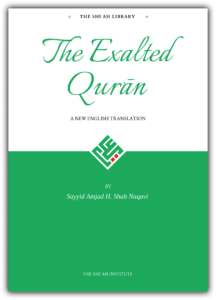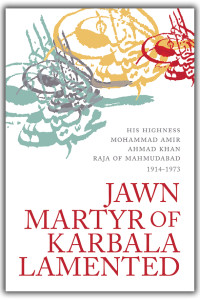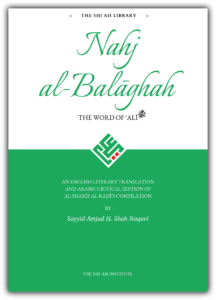
Forthcoming Publication
Nahj al-Balāghah
The Word of ʿAlī
An English literary translation and Arabic critical edition by Sayyid Amjad H. Shah Naqavi
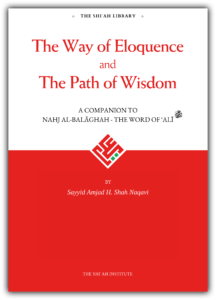
Forthcoming Publication
The Way of Eloquence and the Path of Wisdom
A Companion to Nahj al-Balāghah: The Word of ʿAlī
by Sayyid Amjad H. Shah Naqavi
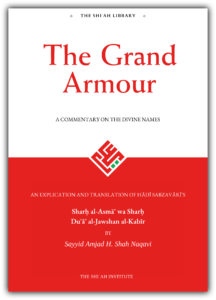
The Grand Armour
A Commentary on the Divine Names
An explication and translation of Hādī Sabzavārī’s Sharḥ al-Asmāʾ wa Sharḥ Duʿāʾ al-Jawshan al-Kabīr by Sayyid Amjad H. Shah Naqavi
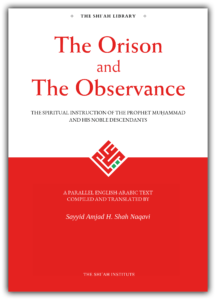
The Orison and the Observance
The Spiritual Instruction of the Prophet Muḥammad and his Noble Descendants
A parallel English-Arabic text compiled and translated by Sayyid Amjad H. Shah Naqavi
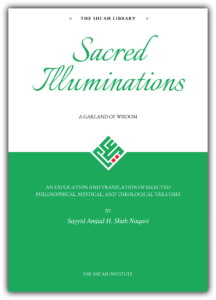
Sacred Illuminations
A Garland of Wisdom
An explication and translation of selected philosophical, mystical, and theological treatises, by Sayyid Amjad H. Shah Naqavi.
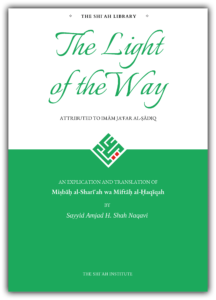
Forthcoming Publication
The Light of the Way
Attributed to Imām Jaʿfar al-Ṣādiq
An explication and translation of Miṣbāḥ al-Sharīʿah wa Miftāḥ al-Ḥaqīqah, by Sayyid Amjad H. Shah Naqavi
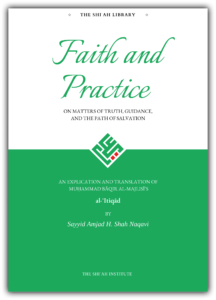
Forthcoming Publication
Faith and Practice
On Matters of Truth, Guidance, and the Path of Salvation
An explication and translation of Muḥammad Bāqir al-Majlisī’s al-ʿItiqād, by Sayyid Amjad H. Shah Naqavi
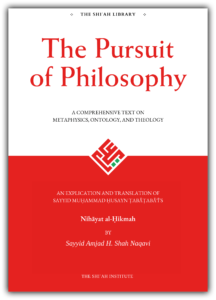
Forthcoming Publication
The Pursuit of Philosophy
A Comprehensive Text on Metaphysics, Ontology, and Theology
An explication and translation of Sayyid Muḥammad Ḥusayn Ṭabāṭabāʾī’s Nihāyat al-Ḥikmah, by Sayyid Amjad H. Shah Naqavi
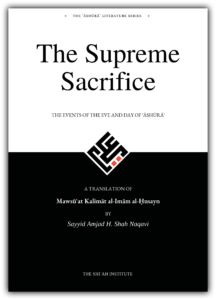
Forthcoming Publication
The Supreme Sacrifice
The Events of the Eve and Day of ʿĀshūrāʾ
A translation of Mawsūʿat Kalimāt al-Imām al-Ḥusayn, by Sayyid Amjad H. Shah Naqavi
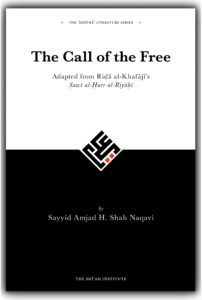
The Call of the Free
Sayyid Amjad H. Shah Naqavi
An adaptation of Riḍā al-Khafājī’s Ṣawt al-Ḥurr al-Riyāḥī
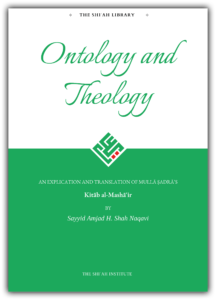
Forthcoming Publication
Ontology and Theology
An explication and translation of Mullā Ṣadrā’s Kitāb al-Mashāʿir, by Sayyid Amjad H. Shah Naqavi
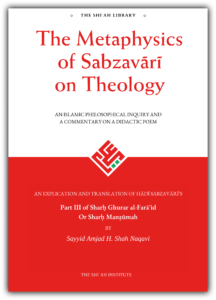
Forthcoming Publication
The Metaphysics of Sabzavārī on Theology
AN ISLAMIC PHILOSOPHICAL INQUIRY AND A COMMENTARY ON A DIDACTIC POEM
An explication and translation of Hādī Sabzavārī’s Sharḥ Ghurar al-Farāʾid or Sharḥ al-Manẓūmah by Sayyid Amjad H. Shah Naqavi
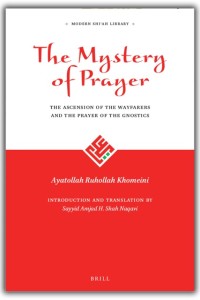
The Mystery of Prayer
THE ASCENSION OF THE WAYFARERS AND THE PRAYER OF THE GNOSTICS
Ayatollah Ruhollah Khomeini
Introduction and translation by Sayyid Amjad H. Shah Naqavi
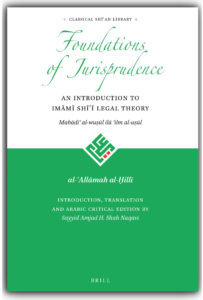
Foundations of Jurisprudence
An Introduction to Imāmī Shīʿī Legal Theory
Jamāl al-Dīn Abū Manṣūr al-Ḥasan ibn Sadīd al-Dīn Yūsuf ibn Zayn al-Dīn ʿAlī ibn al-Muṭahhar al-Ḥillī
Introduction, Translation, and Arabic Critical Edition by Sayyid Amjad H. Shah Naqavi
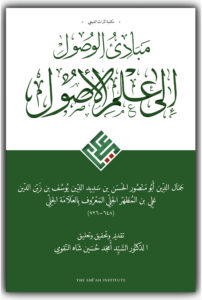
Mabādiʾ al-Wuṣūl Ilā ʿIlm al-Uṣūl
Jamāl al-Dīn Abū Manṣūr al-Ḥasan ibn Sadīd al-Dīn Yūsuf ibn Zayn al-Dīn ʿAlī ibn al-Muṭahhar al-Ḥillī
Arabic Critical Edition by Sayyid Amjad H. Shah Naqavi
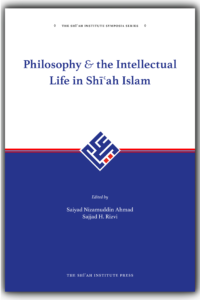
Philosophy and the Intellectual Life in Shīʿah Islam
Symposium 2015
Edited by S. N. Ahmad and S. H. Rizvi
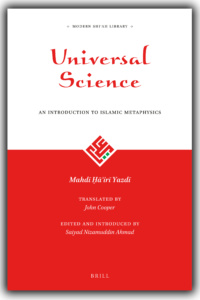
Universal Science
An Introduction to Islamic Metaphysics
Mahdī Ḥāʾirī Yazdī
Translated by John Cooper
Edited and Introduced by S. N. Ahmad
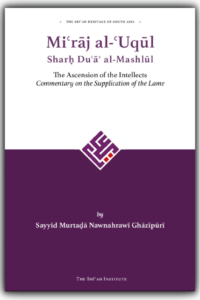
Miʿrāj al-ʿUqūl Sharḥ Duʿāʾ al-Mashlūl
THE ASCENSION OF THE INTELLECTS Commentary on the Supplication of the Lame
Sayyid Murtaḍā Nawnahrawī Ghāzīpūrī

